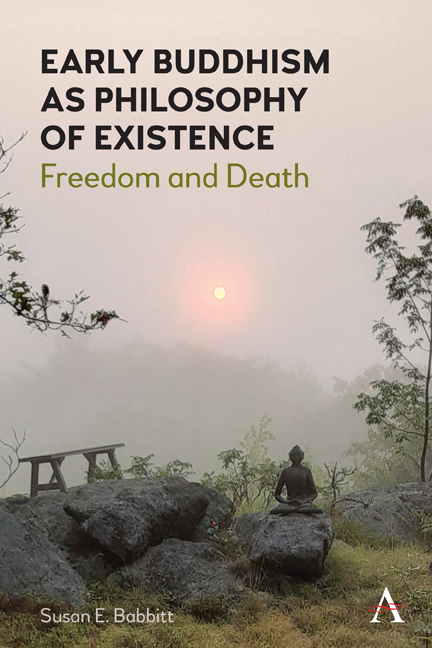1 - Why Philosophy of Existence?
Published online by Cambridge University Press: 15 September 2022
Summary
The real cause of the loneliness epidemic, mentioned in the introduction, is control of meaning. Controlling one's story is a ‘way to be free’, even if invented. Or so it's believed. I give examples in what follows. We want a clear story line, by which is meant the separation of theory and practice. It is an old and appealing story of knowledge, dominant into the twenty-first century.
It is false but still influential.
It is a view, roughly, according to which the intellectual is not messed up by contingent events; instead, it is constrained by pre-established criteria. The Buddha understood differently the relationship between theory and practice. He taught living without watching oneself live, that is, without needing a story with the right ending. And yet, he had an idea of finding our bearings. He urged us on the road to truth, except truth as known through relations.
He was, as will be explained more fully later, a relational philosopher. Living without watching oneself live is how to know others, those who don't count. Indeed, it is the only way. But it means changing how one thinks of oneself at a deeper level.
Thomas Merton wrote: ‘if we could let go of our obsession with what we think is the meaning of it all, we might be able to […] [catch] a glimpse of the cosmic dance.’ He meant nature, but not just trees, birds, clouds and skies. Rather, he meant nature's nature; if we grasp nature's essence, we ‘forget ourselves on purpose, cast our awful solemnity to the winds, and join in the general dance’.
When we know the ultimate truth of nature, we connect.
Merton was a Trappist monk who lived in silence. Yet he was politically engaged, an activist, deeply concerned about global injustice. In early Buddhism, respect for relations happens first in silence, observing cause and effect within the body. But it is at the same time about the world and its peoples.
It is about how to know the invisible. Causation is invisible, as mentioned in the introduction. We know through feeling. Yet in the current world, most people are invisible, as people, as conventional truth.
- Type
- Chapter
- Information
- Early Buddhism as Philosophy of ExistenceFreedom and Death, pp. 9 - 32Publisher: Anthem PressPrint publication year: 2022

